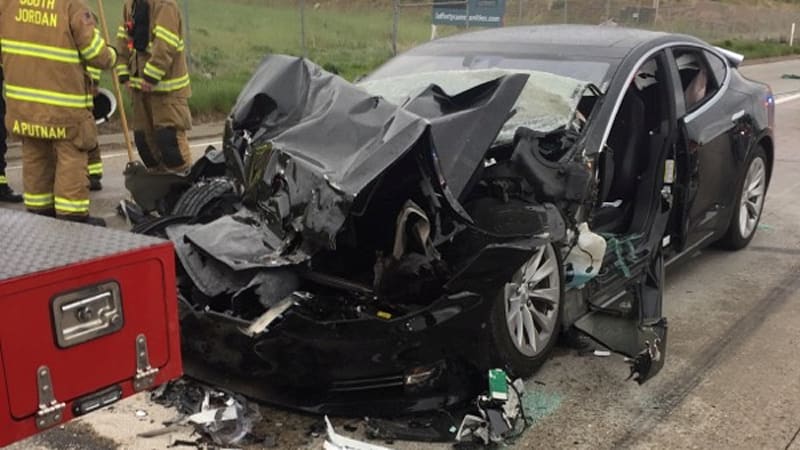LONDON – The Dutch government’s forensics lab said on Thursday it had decrypted electric car maker Tesla’s highly guarded data storage system, exposing a wealth of information that could be used to investigate serious accidents.
Tesla cars were already known to store accident data, but the Netherlands Forensic Institute (NFI) said it had uncovered much more data than researchers previously knew.
The NFI said the decoded data showed that Tesla vehicles are storing information about the operation of its driver assistance system, known as Autopilot. The vehicles also record speed, accelerator pedal position, steering angle and braking use, and depending on how the vehicle is used, that data can be kept for more than a year.
“This data contains a wealth of information for forensic investigators and road accident analysts and can help with a criminal investigation after a fatal road accident or an accident with injury,” Francis Hoogendijk, digital detective at the NFI, said in a statement.
Tesla did not immediately respond to a request for comment.
The Dutch lab said that instead of seeking out Tesla’s data, it had “reverse-engineered” datalogs — a process of deconstructing software to extract information — present in Tesla vehicles “to examine them objectively”.
‘WHO IS RESPONSIBLE?’
The NFI was investigating a collision between a Tesla driver with Autopilot and a car in front of it that suddenly braked hard.
The investigation found that the Tesla driver responded to a warning to regain control within the expected response time, but that the collision occurred because the Tesla was following the other vehicle too closely in heavy traffic.
“That makes it interesting, because who is responsible for the next distance: the car or the driver?” according to NFI researcher Aart Spek.
The NFI said Tesla encrypts its encrypted driving data to secure its technology from other manufacturers and to protect driver privacy. In the event of an accident, car owners can request their data, including camera images.
Earlier this year, Tesla said it had set up a site in China to store car data locally as automakers came under increasing scrutiny over how they handle information collected by vehicle cameras and sensors.
DECRYPTION REVEALS MORE DATA
The NFI found that Tesla had complied with data requests from the Dutch authorities, but had omitted a lot of data that could have been useful.
“However, Tesla provides only a specific subset of signals, only the requested ones, for a period of time, while the log files contain all the signals recorded,” the NFI report said.
By decrypting Tesla’s code, the NFI now knows more about what kind of data the automaker stores and for how long, allowing for more detailed data requests, Hoogendijk said.
“You can’t claim what you don’t know, so it’s helpful that we now know what else is being stored,” he said.
Hoogendijk added that this also applies to other car manufacturers, because researchers simply do not know how much and what kind of data manufacturers keep and for how long.
Tesla can remotely access the data, the lab said, which is periodically uploaded from cars and used by the company for product improvements or troubleshooting.
The NFI said it had obtained data from Tesla Models S, Y, X and the mass-market Model 3 and shared the results at a conference of the European Association for Accident Research for other accident analysts to use.
In August, the US National Highway Traffic Safety Administration (NHTSA) opened a formal safety investigation into Tesla’s Autopilot system in 765,000 US vehicles after a series of crashes involving Tesla models and emergency vehicles.
To date, the NHTSA has identified 12 accidents involving Tesla vehicles using advanced driver assistance systems and emergency vehicles. NHTSA said most of the incidents took place after dark.
Related video:
